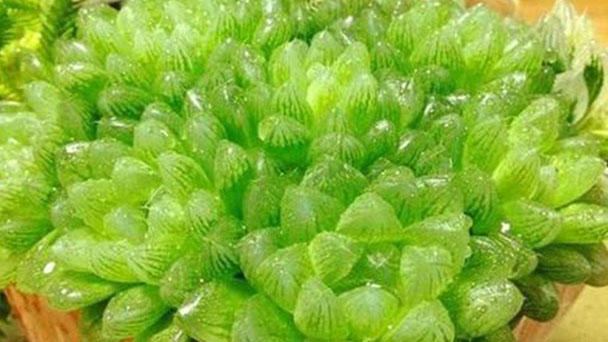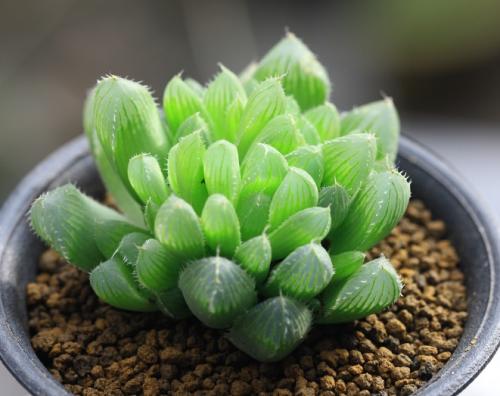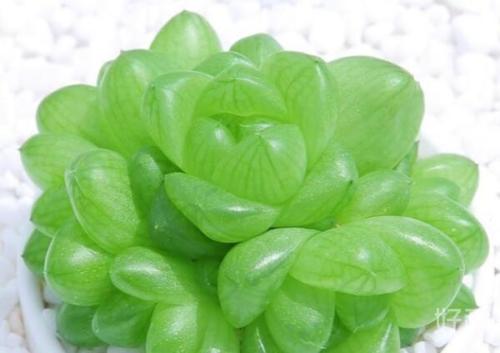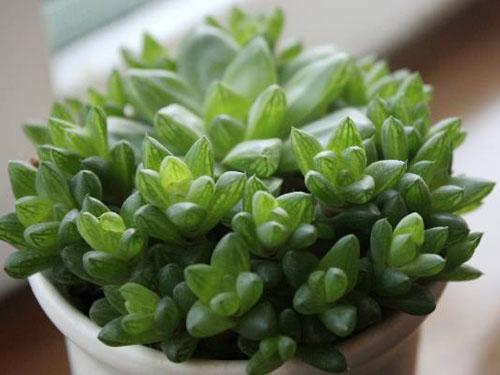Haworthia Obtusa profile
Written by Maggie
Aug 10 2021

Haworthia Obtusa is found in the wild in southern Cape Province, South Africa.Small and lovely, it will not grow very big, but it is easy to form a group posture. Liking the growth environment with bright light, the leaf can become gray-brown when the light is too strong, and can recover after moving to half shade place.In the spring and autumn growing season, the soil is completely dried and then watered.Avoid sun exposure and reduce watering during hot summer months.In winter put it in the sunny indoor, and apply less watering but more spraying.
Haworthia Obtusa picture

Haworthia Obtusa growth environment
When Haworthia Obtusa grows, it should be given sufficient light. If overshaded, the plant will be loose and not compact, with elongated leaves and poor transparency of the "window".If the light is too strong, then the leaves will not grow well, showing light red brown, sometimes strong direct sunlight will burn the leaves, leaving ugly spots. If growing in the shade, the leaves are thick, full, high transparency.
Haworthia Obtusa main value
As an ornamental plant, Haworthia Obtusa is suitable for small potted plants, which are displayed on windowsills, desks, balconies, etc. haworthia obtusa enjoys its unique plant type and leaves in its spare time, from which it can comprehend the magic of nature and the charm of plants.

Haworthia Obtusa propagation method
Haworthia Obtusa strains breeding can be combined in a basin of points, and also can harvest next to the plant shoot. During the growing season, the plant with or without a root can survive. It needs to be put in the air for 1 to 2 days for no root of seedlings, and the plant after wound drying. Watering should not be too much for a new plant, lest cause rot, and apply normal management of the reentry after new root length. You can also choose strong fleshy leaves in the growing season for leaf insertion. After insertion, keep the soil slightly moist. It is easy to take root at the base and grow small buds.

Latest Updated
- Benefits of Bugleweed - 7 Science-backed Health Benefits
- Bugleweed Dangers & Side Effects - Is It Poisonous?
- How to Plant Evergreen Trees - What You Should Know
- When to Plant Evergreens - Grow Guide for Evergreen Trees
- 12 Wonderful Evergreen Shrubs for Your Garden
- 12 Popular Evergreen Plants with Pictures for Beginners
- When And How To Prune A Lilac Bush Like a Pro
- How to Grow & Care for Lilac Vine (Hardenbergia Violacea)
- Japanese Lilac Tree (Syringa Reticulata) Care & Propagation Guide
- Shumard Oak Pros and Cons - What to Know
Popular Articles
- Winter maintenance of Antirrhinum Majus
- How to Grow Terminalia Mantaly Tree
- How to Grow and Care for Crossostephium Chinense
- How to grow Antirrhinum Majus in spring
- Peristeria Elata (Dove Orchid) Profile: Info & Care Guide
- Underwatered Snake Plant (Sansevieria Trifasciata) - Signs And How To Fix
- How to Care for Brazilian Jasmine Plant (Mandevilla Sanderi)
- How to Grow & Care for Graptopetalum Purple Delight in Summer
- Rosa Chinensis (China Rose): Plant Growing & Care Tips
- How to Care for Baby Sun Rose (Aptenia Cordifolia)